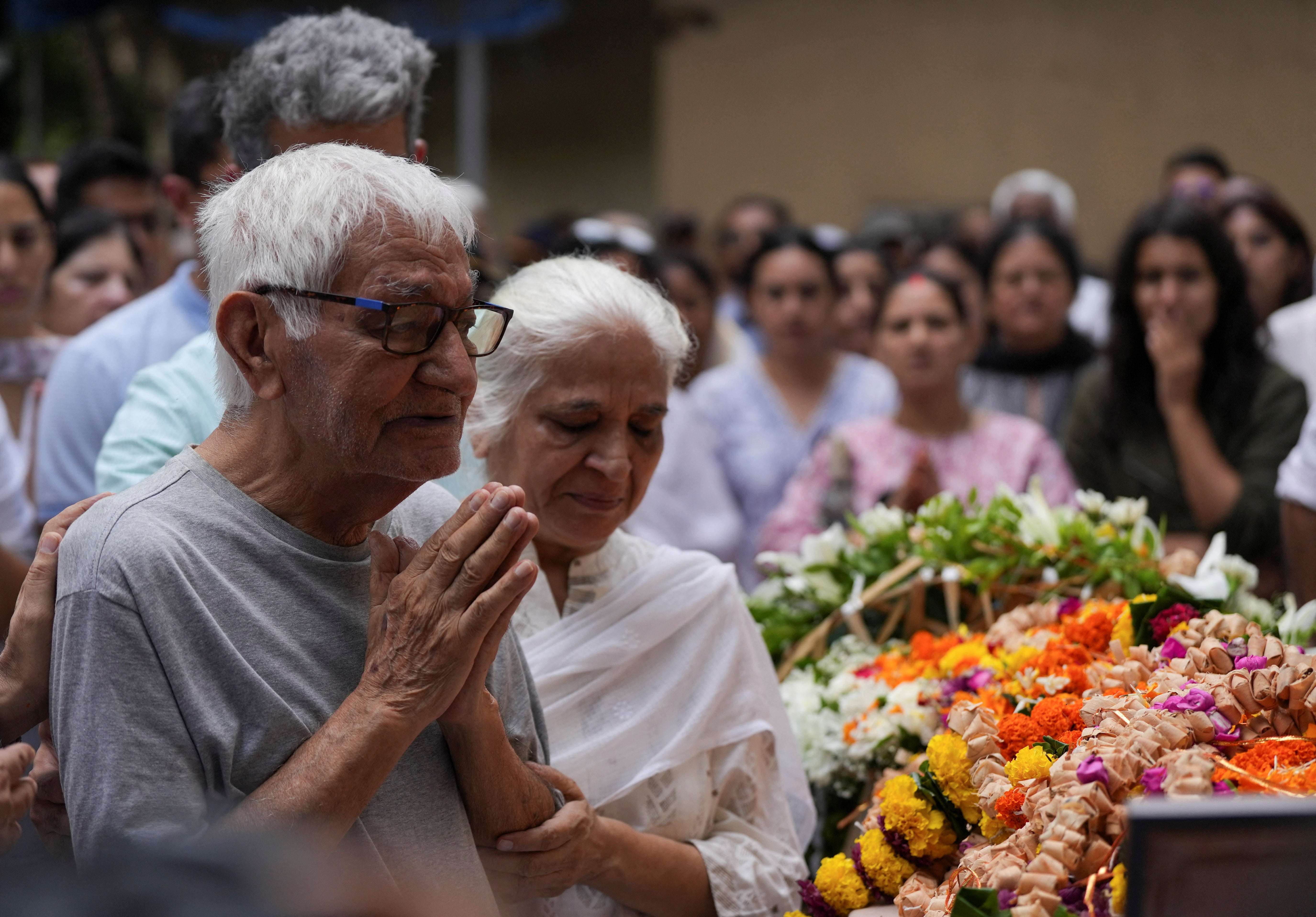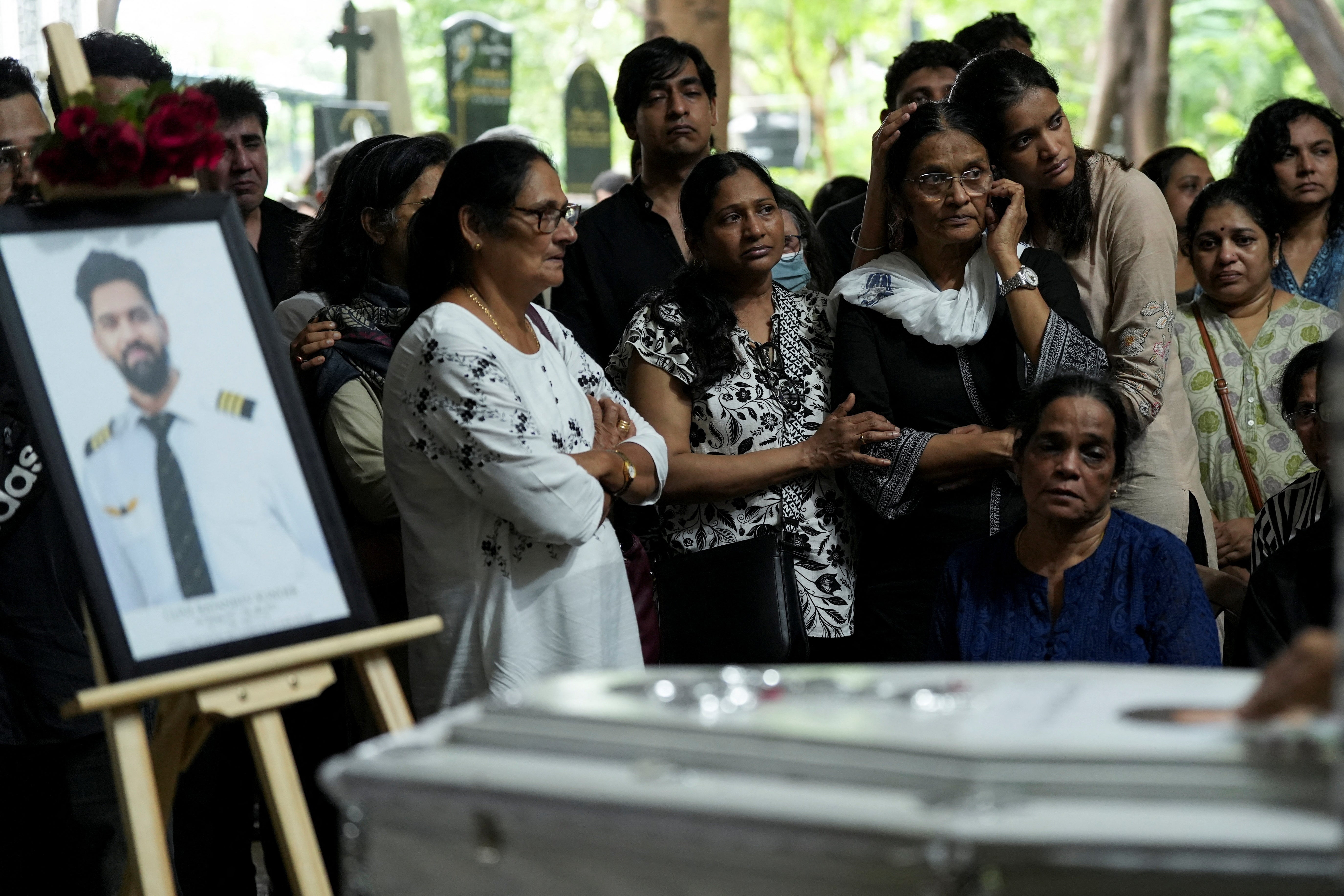An analysis of the cockpit voice recorder from the Air India flight that crashed in Ahmedabad last month reportedly showed the younger co-pilot asking the captain why he had turned off the fuel switches.
The analysis came after an initial investigation into the Boeing 787 Dreamliner crash, which killed at least 260 people, found the aircraft’s fuel switches had almost simultaneously flipped from “run” position to “cutoff” three seconds after take-off.
First officer Clive Kunder was at the controls during take-off and at the time of the crash, the Wall Street Journal reported, citing unnamed sources. It was Kunder who asked captain Sumeet Sabharwal why he had flipped the switches, starving the engines of fuel, according to the report.
The preliminary report published by India’s Aircraft Accident Investigation Bureau said one pilot was heard on the voice recorder asking the other why he had cut off the fuel. “The other pilot responded that he did not do so,” the report added.
The report, however, stopped short of attributing blame.
Shortly after taking off for London at 1.37pm local time on 12 June, the Boeing 787 Dreamliner started to lose thrust and sink, the report said.
All but one of the 242 people onboard flight AI171 to Gatwick were killed, including 53 Britons. At least 19 people also died on the ground as the plane crashed into a medical college building.
An association of Indian pilots had rejected the investigation report’s insinuation that pilot error could be behind the crash.
The Airline Pilots’ Association of India, representing Indian pilots at the International Federation of Air Line Pilots’ Associations in Montreal, called for a “fair, fact-based inquiry”.
“The pilots’ body must now be made part of the probe, at least as observers,” the association’s India president Sam Thomas said.
The Journal did not state if there was evidence Sabharwal had indeed moved the fuel switches beyond the verbal exchange quoted in the report. But it quoted American pilots familiar with the Indian investigation report as saying that Kunder, the pilot actively flying, likely would have had his hands full pulling back on the Dreamliner’s controls at that stage of the flight.
Captain Sumeet Sabharwal
Sabharwal, 56, started his aviation career in the early 1990s and logged over 15,000 hours of flying experience. After joining Air India in 1994, he went on to become “line training captain”, a role to train and guide co-pilots during live flights. He had obtained clearances to fly as pilot-in-command on several aircraft, including the Boeing 787 and 777 and the Airbus A310.
At least 8,596 hours of his total flying experience of 15,638 hours were logged on a Boeing 787.

Sabharwal, from the western Indian city of Mumbai, was widely regarded as disciplined and professional, with no complaint ever filed against him. Friends and relatives remembered him as a soft-spoken and humble man.
Months away from his retirement, he planned to stay with his father, Pushkaraj Sabharwal, 88, to take care of him. He never married or had children.
His neighbours earlier told The Indian Express he had been looking forward to spending more time at home and caring for his ageing parent.
On the day of the crash, he reportedly called his father from the airport. “I’ll call you once I reach London,” he reportedly told him. That call never came.
First officer Clive Kunder
First officer Cliver Kunder, 32, unlike Sabharwal, was at the beginning of a promising aviation career, with over 3,400 hours of flight time to his name.
Kunder grew up in Mumbai and lived alone in the city’s Goregaon area. According to Indian media reports quoting relatives, he had dreamt of flying since childhood. He began his journey as a pilot in 2012 and joined Air India in 2017.

His commercial pilot’s licence, issued in 2020, was valid until 26 September 2025. He had obtained clearances to fly Cessna 172 and Piper PA-34 Seneca aircraft as pilot-in-command and Airbus A320 and Boeing 787 jets as co-pilot.
Kunder was also looking forward to a new chapter in his personal life as he was just two months away from getting married.
At his funeral at the Sewri Christian Cemetery near his home, Steffi Miranda, a close friend from Wilson College, addressed the gathering of family and friends.
“Seventeen years ago, we met Clive for the first time. Since then, we watched him grow, evolve, and soar,” she said.
“Though grief surrounds us, there is pride too – in who Clive became. He hasn’t left us; he’s only flying higher now.”

Both Sabharwal’s and Kunder’s fascination for aviation had begun at home. Sabharwal’s father had retired from India’s aviation regulator, the Directorate General of Civil Aviation, while Kunder’s mother was a former Air India flight attendant.
Air India CEO Campbell Wilson earlier said that both pilots had passed the mandatory pre-flight breathalyser tests and there were no observations about their medical status.
“The Air India crash investigation is far from over,” Mr Wilson said, adding that the airline continued to cooperate with authorities, according to an internal memo seen by Reuters.
However, he cautioned against “premature conclusions” amid growing scrutiny over the preliminary investigation.
